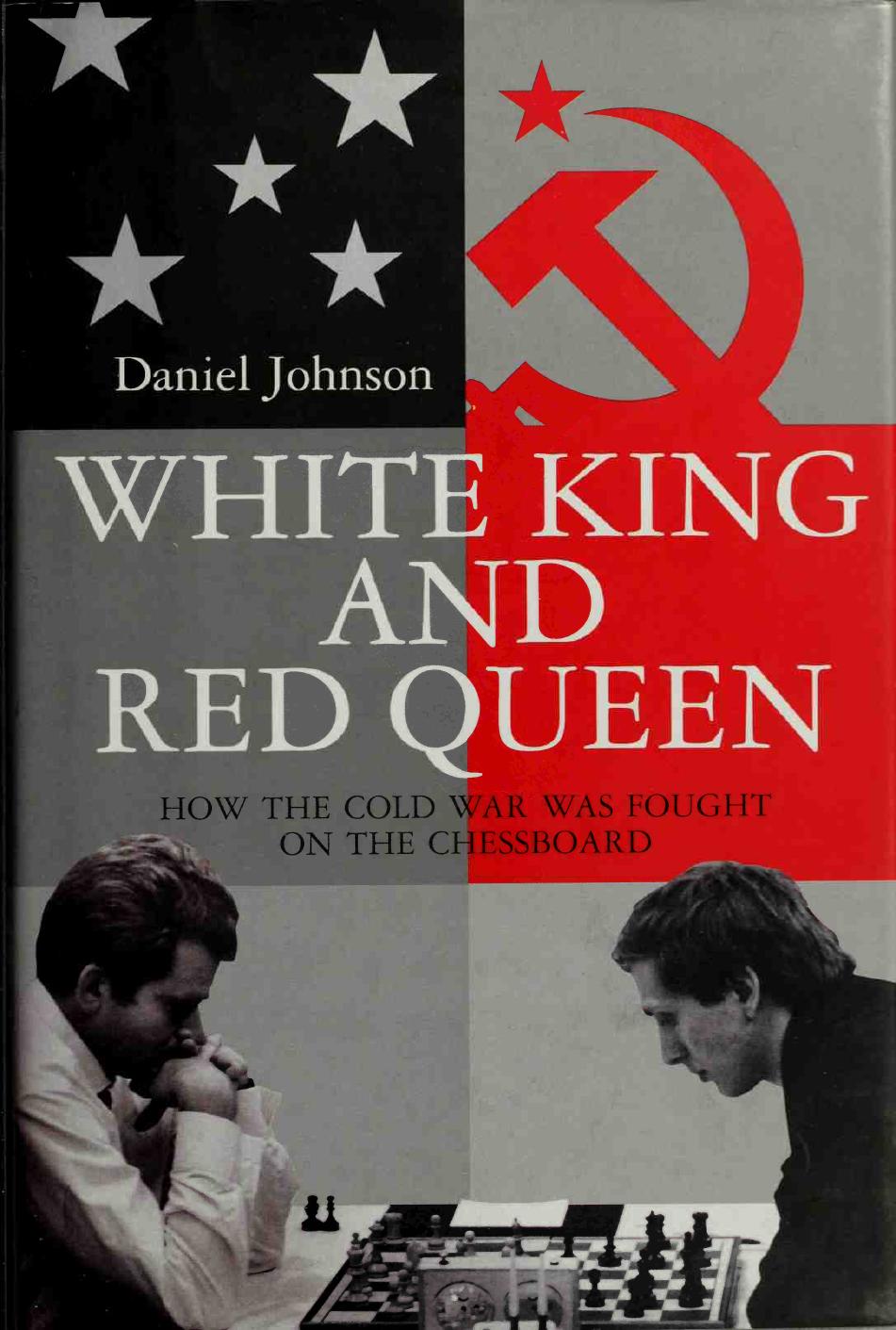White King and Red Queen: How the Cold War Was Fought on the Chessboard by Daniel Johnson

Author:Daniel Johnson [Johnson, Daniel]
Language: eng
Format: epub, pdf
Tags: Games & Activities, Chess, political science, History & Theory
ISBN: 9780547133379
Google: 7Lzd7SaQA_YC
Publisher: Houghton Mifflin Harcourt
Published: 2008-11-15T00:18:08.550523+00:00
Chess training for children at the Young Pioneer Palace, Leningrad, 1959. The former capital produced many great masters, including Botvinnik, Korchnoi, and Spassky.
In 1955, aged thirteen, Bobby Fischer was already giving simultaneous exhibitions against adults, such as this one in Jersey City. A year later, he was U.S. champion.
The early 1970s were years of détente. This new orthodoxy was a refinement of the postwar doctrine of containment. Instead of containing communist aggression, the West settled for containment of its consequencesâthe periodic crises that sent seismic waves through the global economy from about 1947 to about 1970. After the two most frightening decades in history, both sides sought the comfort zone of a system of diplomacy. The new settlement was intended to make the crises and confrontation of the postwar era a thing of the past. Détente was supposed to create a framework of rules, agreements, and understandings that, without ending the Cold War, would at least make it predictable. The point about the strategic doctrine that preceded détente, mutually assured destruction (MAD), was not that it was destructive but that it was mutual and assured. Détente took the logic of MAD several steps further. The status quo that détente perpetuated was inhumane, certainly, but it was not unpredictable. The trouble with the doctrine and its apostle, Henry Kissinger, was that they elevated stability above liberty, so depriving the West of its strongest weapon. The compromises that were intended to be the means to preserve peace soon became ends in themselves. Sooner than anybody suspected, the subversive power of truth would shatter the institutional carapace of détente, while in the meantime its high priests engaged in elaborate rituals of self-congratulation. Realpolitik was the watchword of the day, but it concealed the true significance of détente, which was to mask the consolidation of Soviet imperial expansion.
In the Brezhnev era, the Soviet empire, surrounded by satellites, embarked on the colonization of Asia, Africa, and Latin America. The illusory power of this vast oriental despotism had reached its utmost extent. Soviet imperial overstretch was fueledâoften literally soâby primitive oil plants that could not begin to compensate for the metastasis of Soviet bureaucracy and the obsolescence of Soviet heavy industry. At this turning point, Solzhenitsyn published The Gulag Archipelago, the judgment in literary form that laid bare the lie at the heart of communism and lit the fuse that would ultimately detonate the entire structure. In his Letter to the Soviet Leaders of 1973, he warned: "The aims of a great empire and the moral health of the people are incompatible." Yet, as he later acknowledged in The Russian Question, his postmortem on the Soviet Union, the Machiavellianism of Soviet diplomacy was modeled on grandmaster chess:
The Communist leaders knew exactly what they wanted, and every action was directed exclusively towards the realization of this useful objectiveânever a single magnanimous or disinterested move; and every step was calculated precisely, with all possible cynicism, ruthlessness and sagacity in assessing the adversary ... it always surpassed and defeated the West .
Download
White King and Red Queen: How the Cold War Was Fought on the Chessboard by Daniel Johnson.pdf
This site does not store any files on its server. We only index and link to content provided by other sites. Please contact the content providers to delete copyright contents if any and email us, we'll remove relevant links or contents immediately.
| Africa | Americas |
| Arctic & Antarctica | Asia |
| Australia & Oceania | Europe |
| Middle East | Russia |
| United States | World |
| Ancient Civilizations | Military |
| Historical Study & Educational Resources |
Machine Learning at Scale with H2O by Gregory Keys | David Whiting(4279)
Never by Ken Follett(3915)
Fairy Tale by Stephen King(3348)
Oathbringer (The Stormlight Archive, Book 3) by Brandon Sanderson(3104)
The Man Who Died Twice by Richard Osman(3054)
Will by Will Smith(2889)
Rationality by Steven Pinker(2336)
Can't Hurt Me: Master Your Mind and Defy the Odds - Clean Edition by David Goggins(2309)
The Dark Hours by Michael Connelly(2288)
Friends, Lovers, and the Big Terrible Thing by Matthew Perry(2207)
The Dawn of Everything: A New History of Humanity by David Graeber & David Wengrow(2177)
Principles for Dealing With the Changing World Order: Why Nations Succeed and Fail by Ray Dalio(2025)
HBR's 10 Must Reads 2022 by Harvard Business Review(1828)
A Short History of War by Jeremy Black(1825)
Go Tell the Bees That I Am Gone by Diana Gabaldon(1743)
A Game of Thrones (The Illustrated Edition) by George R. R. Martin(1691)
515945210 by Unknown(1650)
Kingdom of Ash by Maas Sarah J(1643)
443319537 by Unknown(1533)
